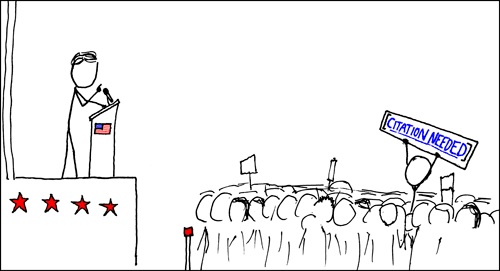 (image by Randall Munroe)
(image by Randall Munroe)
Plagiarism: The action or practice of taking someone else's work, idea, etc., and passing it off as one's own; literary theft.
(Oxford English Dictionary 3rd Edition 2006)
Plagiarism occurs when someone:
- Uses words, ideas, or work products that are attributable to another identifiable person or source
- Do so without attributing the work to the source from which it is obtained
- In a situation in which there is a legitimate expectation of original authorship
- In order to obtain some benefit, credit, or gain which need not be monetary
Fishman, T. (2009). “We know it When We see it” is not Good Enough: Toward a Standard Definition of Plagiarism that Transcends Theft, Fraud, and Copyright. In:Proceedings of the Fourth Asia Pacific Conference on Educational Integrity (4APCEI) 28–30 September, University of Wollongong, NSW, Australia. Preprint available online at http://www.bmartin.cc/pubs/09-4apcei/4apcei-Fishman.pdf cited 20 July 2015
Words to Know:
Paraphrase: A restatement of a text or passage in another form or other words, often to clarify meaning.
(American Heritage Dictionary of the English Language)
Intellectual Property: property (as an idea, invention, or process) that derives from the work of the mind or intellect; also : an application, right, or registration relating to this
(Miriam-Webster's Collegiate dictionary)
 Research Guides@Tufts
Research Guides@Tufts
 Research Guides@Tufts
Research Guides@Tufts